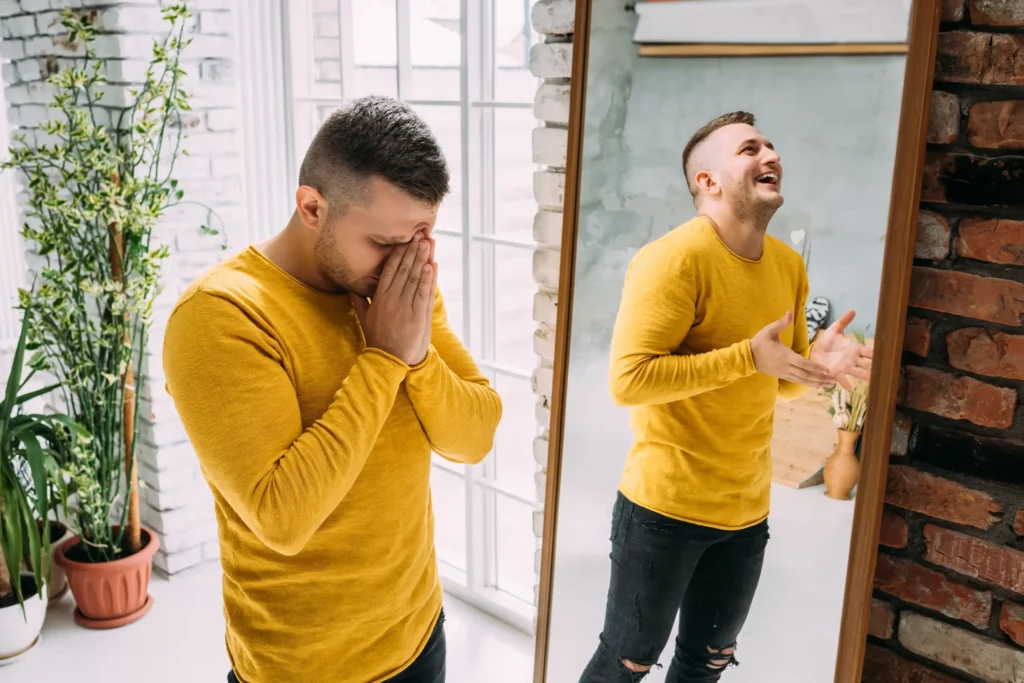Bipolar Disorder (BDP) is a mental health condition that causes extreme mood swings that include emotional highs (mania or hypomania) and lows (depression). These mood swings are often very sudden, and can affect energy, sleep, activities, judgement, and clarity. The frequency of swings can vary greatly. Some patients may only experience them a few times a year. Others might have them daily.
Bipolar disorder (also frequently spelled bi-polar disorder) used to be referred to as manic depression. It is a classification of several subtypes, including Bipolar I, Bipolar II, and Cyclothymic disorder.
Symptoms of Bipolar Disorder
The symptoms of bipolar disorder can vary greatly, but most people suffer from unpredictable changes in mood and behavior, which result in significant distress and difficulty in life.

When in a mania or hypomania phase, patients can experience:
- periods where you sleep very little, or not at all;
- bursts of energy, where you feel highly motivated and energetic;
- distractibility, or feeling like you are “all over the place”;
- talking too much or too loudly;
- difficulty controlling spending; and
- tendency to be sexually impulsive or having sex with unhealthy partners.
When having a depressive episode, patients can experience:
- depressed mood, or feeling empty, sad or hopeless;
- loss of interest in activities they used to enjoy;
- fatigue or energy loss;
- restlessness or slowed behavior;
- not able to think, concentrate or “see things through”;
- a struggle to maintain an organized household; and
- inability to maintain long-term relationships, especially romantic ones.
Get help with BPD
It can be difficult for people with bipolar disorder to recognize how much their condition affects their lives and the lives of those around them. Some people also experience euphoria during productive mania cycles, so there may not be much interest in getting help.
But those mania or hypomania cycles end, and the emotional crash can leave patients severely depressed, worn out, or in legal or financial trouble.
It’s important to get help as soon as these behaviors start impacting your daily life. To see if you are at risk for BPD, use our free self-evaluation tool or contact the counselors and psychologists at Dallas Whole Life Counseling for help. Make an Appointment today.
Getting started takes just a few minutes and we can often accommodate same-day / next-day appointments
Making an appointment is quick and easy. After you submit your request, our office staff will send you information on how to fill out new patient paperwork, gather necessary documentation, and confirm your appointment. If it’s currently normal business hours, we’re usually in touch within one to two hours. You can request to be seen ASAP for a same-day or next-day appointment. Appointment availability may be influenced and limited by factors like your insurance plan and if you’d like to see a specific counselor.
Dallas Whole Life Counseling offers Bipolar Disorder (BPD) therapy and Bipolar Disorder (BPD) counseling through Bipolar Disorder (BPD) therapists and Bipolar Disorder (BPD) counselors. We offer Bipolar Disorder (BPD) therapy Dallas, Bipolar Disorder (BPD) therapy Fort Worth, Bipolar Disorder (BPD) therapy DFW, Bipolar Disorder (BPD) therapy near me with Bipolar Disorder (BPD) therapist Dallas, Bipolar Disorder (BPD) therapist Fort Worth, Bipolar Disorder (BPD) therapist DFW, Bipolar Disorder (BPD) therapist near me. As well as Bipolar Disorder (BPD) counseling Dallas, Bipolar Disorder (BPD) counseling Fort Worth, Bipolar Disorder (BPD) counseling DFW, and Bipolar Disorder (BPD) counseling near me with Bipolar Disorder (BPD) counselor Dallas, Bipolar Disorder (BPD) counselor Fort Worth, Bipolar Disorder (BPD) counselor DFW, and Bipolar Disorder (BPD) counselor near me.
Our counselors and therapists see patients in the Dallas Fort Worth Area, including Dallas, Fort Worth, Arlington, Plano, Irving, Denton, Richardson, and Grapevine. We also see patients statewide through telehealth visits.

